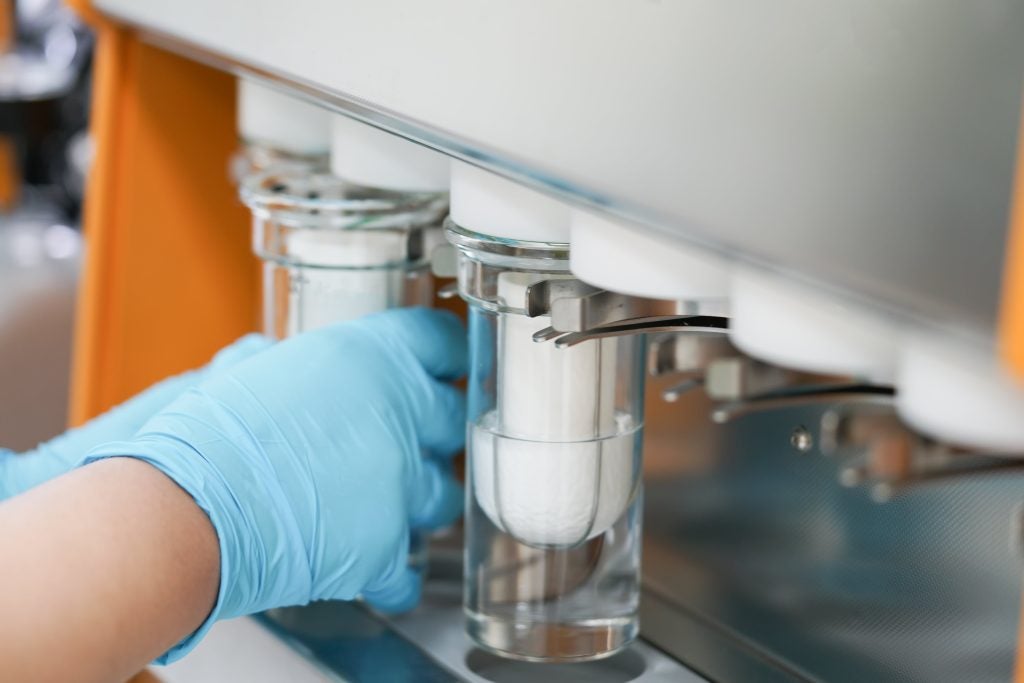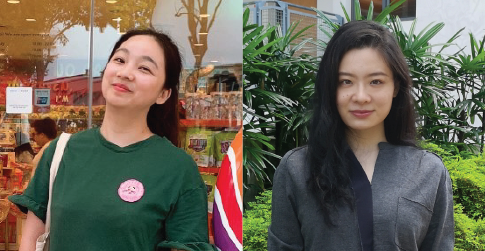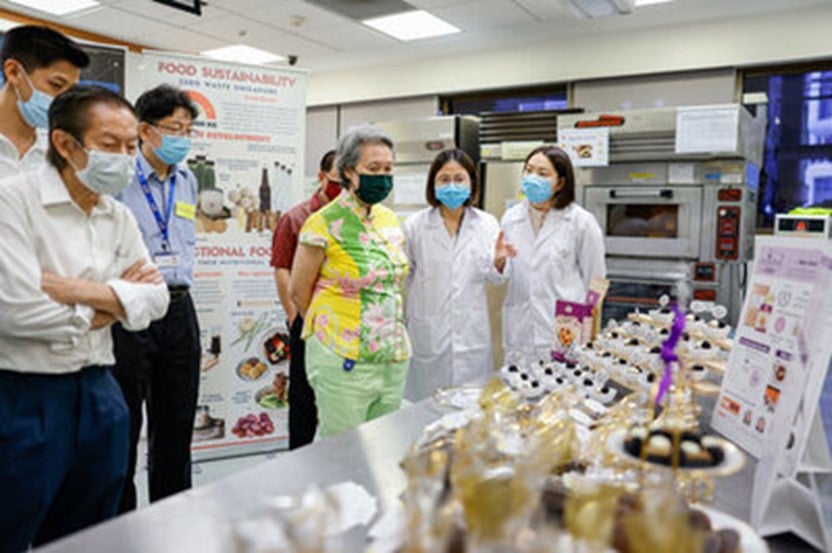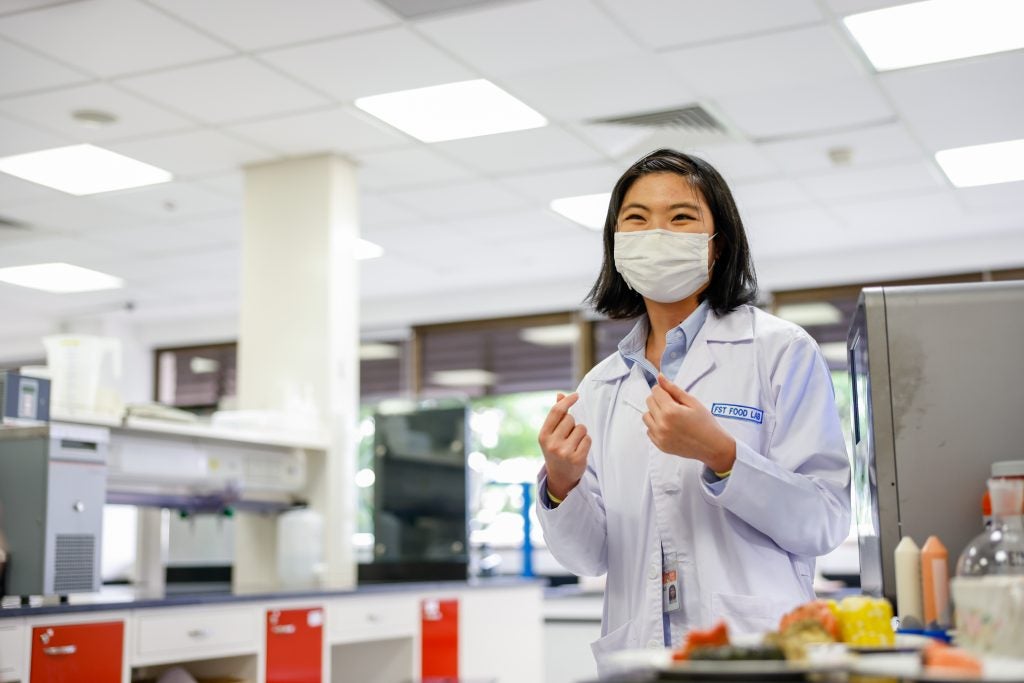Department
Food Science and Technology

Prof Zhou Weibiao
Head of Department

Prof Zhou Weibiao
Head of Department
Food Science and Technology

Prof Zhou Weibiao

Shaping Future Talent
The Department of Food Science and Technology launched several academic programmes to broaden the repertoire of options for new students under the College of Humanities and Sciences. These include a Minor in Nutrition and a new Specialisation in Food Science and Technology Research and Innovation.

We enlarged our suite of Graduate Certificate (GC) courses, enabling working adults to update and upgrade their knowledge and skills for professional and personal development.
We now offer five GCs including Food Science, Food Flavour and Fermentation, Food Processing, Food Safety and Toxicology and Human Nutrition.

NUS President Prof Tan Eng Chye (front row, left) and SIT President Prof Tan Thiam Soon (front row, right) accepted the cheques on behalf of their universities from Primus Cheng, Chairman and Chief Executive Officer, Prima Limited (front row, third from left)
In May 2021, food conglomerate Prima Group generously endowed a $3 million gift to support food science education and research. The department also launched our FST Alumni Bursaries last year, to ensure that learning stays accessible, especially to financially disadvantaged students during the pandemic.
Shaping Future Solutions
Our research continues to advance discovery and yield insights on topics ranging from new functional ingredients to innovative new products.

Food safety in urban farming
Asst Prof LI Dan‘s research team aims to assess food safety hazards in emerging urban farming systems, such as the internalisation of foodborne pathogens in leafy greens and biofilm formation in indoor hydroponics irrigation systems. They also plan to develop mitigation measures for risk management. Their work will contribute to Singapore’s goal to produce 30% of our nutritional needs by 2030. Their study is supported by a grant from the Agency of Science, Technology and Research (A*STAR).

Institute of Food Technology (IFT) Awards (2021)
PhD students HE Yun (left) and WANG Yue (right) both emerged top in the IFT Graduate Student Competition in the Aquatic Food Products Division, and Food Microbiology Division, respectively. Both are studying the effects of electrolysed water, one on preservation and the other on antimicrobial function.
Catalysing impactful enterprises
On 19 March 2021, we hosted a visit for members from the Tan Jiak Kim Circle to our teaching and research facilities. This was part of a series of specially curated stewardship events to showcase NUS’ innovation and enterprise efforts. Guests toured the FST Research Corridor, Teaching Laboratories and Food Safety Laboratories. The programme also featured topics of interest like food sustainability, food security, health and nutrition and advanced food technologies.
Prof Leo Tan, the Faculty’s Director of Special Projects (left), Prof Zhou Weibiao, FST Head of Department (second from left), Mdm Ho Ching (centre) and guests
Catalysing impactful enterprises

Prof Leo Tan, the Faculty’s Director of Special Projects (left), Prof Zhou Weibiao, FST Head of Department (second from left), Mdm Ho Ching (centre) and guests
On 19 March 2021, we hosted a visit for members from the Tan Jiak Kim Circle to our teaching and research facilities. This was part of a series of specially curated stewardship events to showcase NUS’ innovation and enterprise efforts. Guests toured the FST Research Corridor, Teaching Laboratories and Food Safety Laboratories. The programme also featured topics of interest like food sustainability, food security, health and nutrition and advanced food technologies.
Shaping Future Society
Our work and innovations contribute to shaping the future of food and nutrition through the creation of healthier sustainable foods.
The future of food is continually being reshaped through innovation. We offer platforms like the NUS FoodTech Challenge where tertiary-level students formulate food technology ideas to address pressing industry issues. The second edition of this competition in July 2021 challenged participants to valorise food waste sidestreams in production lines into their prototypes. The winning team from FST, Mottai, developed a flavourful, low-calorie snack while the best undergraduate team, SOY OK, presented a healthy cereal for alleviating malnutrition.
Our students also showcased their ability to apply classroom knowledge to solve challenges in developing plant-based foods. Undergraduate students Derick LEE, Paulie TEO, TAN Ting Wei and YEO Yong Liang proposed a plant-based, fully vegan, coconut-flavoured butterfly pea ice cream that changes into a galaxy-like purple upon contact with mild acids like lemon juice. They clinched the second prize in the South East Asian Food Innovation Challenge (2021) out of 125 teams from 13 different countries.






